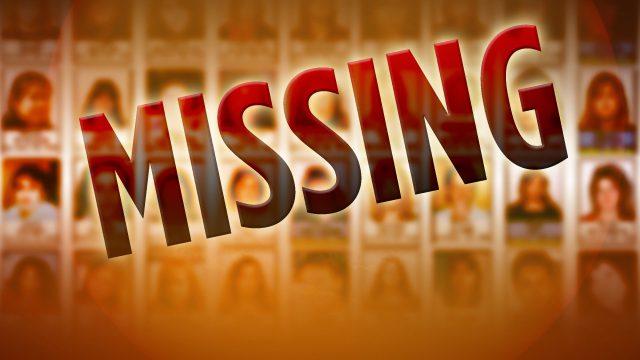NWAC neutral on Mohawk activist’s plan for direct action to force missing, murdered public inquiry
The president of the Native Women’s Association of Canada says she supports Mohawk activist Shawn Brant’s call for a public inquiry into the high number of murdered and missing Indigenous women, but remained neutral on his plans to use unspecified direct action to force Ottawa’s hand on the issue.
By Jorge Barrera
APTN National News
The president of the Native Women’s Association of Canada says she supports Mohawk activist Shawn Brant’s call for a public inquiry into the high number of murdered and missing Indigenous women, but remained neutral on his plans to use unspecified direct action to force Ottawa’s hand on the issue.
NWAC president Michele Audette held a press conference Thursday in Ottawa with NDP and Liberal MPs along with the families of murdered and missing women. Audette again called on the Harper government to strike a national public inquiry. She also unveiled a petition with 23,088 names calling for the same. The petition included 4,000 names from federal public servants, said Audette.
The petition was tabled in the House of Commons.
Brant, a well-known Mohawk activist from Tyendinaga who led a blockade of Hwy 401 in 2007 for 11 hours, recently sent a letter to Prime Minister Stephen Harper demanding the government call an inquiry by the end of the month or face unspecified direct action.
Audette said she appreciated Brant’s support, but said his methods were up to him.
“Right now there is an emergency for those families, if this man wishes to be more proactive…it belongs to him,” said Audette. “So Harper maybe should respond to us, to women, to families, without or with (Brant’s) demand.”
Audette said the movement pushing for the inquiry is based on “non-violence,” given that the estimated 600 murdered and missing Indigenous women were felled by violence.
“But on his call, thank you, we have another supporter,” said Audette.
Gail Nepinak, whose sister was murdered by Winnipeg serial killer Shawn Lamb, said she supports using direct action to force a public inquiry.
“Yeah, I think it’s worth it. It’s been a long time, people don’t understand that it is a serious issue,” said Nepinak, whose sister’s body has never been found and is believed to be in the Winnipeg dump. “I didn’t even understand it. I am starting to understand too…My sister’s murder is still fresh.”
Algonquin elder Annie Smith St. George, who opened and closed the press conference, said she believes the focus should be on peaceful dialogue.
“We should a never stop speaking about it, we should take it and work together, it’s time to come together in a peaceful way,” said Smith St. George. “If we can do a peaceful dialogue and not going against each other, because you know, you get hurt.”
Brant, who has been organizing support for his plans, said the Mohawks of Tyendinaga stand in support of NWAC’s campaign for the inquiry.
“We recognize the tremendous work that they have accomplished on this issue and are very proud to stand in support of their organization and the call for a national inquiry into our murdered mothers and daughters,” said Brant, whose Mohawk community sits near Belleville, Ont.
Brant’s 2007 highway and railway blockades cost the Canadian economy about $100 million, according to the Canadian Security and Intelligence Service.
The main aim of Audette’s press conference was to put the Harper government on notice it would face a campaign calling for the inquiry during the next federal election in 2015. The NDP and the Liberals have both backed an inquiry along with provincial premiers.
Audette said Harper will hear from women on the campaign trail.
“We will make sure the next federal election will be something this federal government will regret,” said Audette. “In the next federal election…we will be voting either for change or a strong commitment.”
Audette said the special Parliamentary committee created last year to delve into the issue of murdered and missing Indigenous women had been a failure. It’s a foregone conclusion the committee won’t recommend an inquiry in its planned report to Parliament because it’s dominated by a Conservative majority.
The committee held its last day of hearings Thursday.
NDP MP Nikki Ashton said it’s troubling the Conservatives have dug in opposing the inquiry.
“Imagine if there were 600 non-Indigenous women missing in our country, women whose families didn’t know what happened to them,” said Ashton.
“In the face of the pleas from the victims’ families and urging of Aboriginal leadership and all provincial and territorial premiers it is unconscionable the Conservative government continues to stubbornly refuse to call a national public inquiry into the ongoing tragedy of missing and murdered Aboriginal women and girls,” said Liberal MP Carolyn Bennett.
Harper has persistently opposed calls for a public inquiry, despite domestic and international pressure, most recently from James Anaya, the UN rapporteur on Indigenous peoples.
The Harper government has chosen not to dedicate any funds to specifically solve unsolved missing and murdered Indigenous women cases. Instead, Ottawa has decided to lump those cases into broader efforts to deal with missing persons in general.
The federal budget unveiled Tuesday made no mention of an inquiry, but committed $25 million over five years beginning in 2015 to “continue efforts to reduce violence against Aboriginal women and girls.”
Audette said the money will be primarily used to fund the National Centre for Missing Persons and Unidentified Remains, which doesn’t specifically targeted murdered and missing Indigenous women.
The same amount of money was pledged in 2010 and the bulk of it was also redirected to the centre.
Some of the money was also earmarked for families and victims services, but Audette said no one knows where to find those services.
Friday, Valentine’s Day, is a national day of remembrance for murdered and missing Indigenous women.











